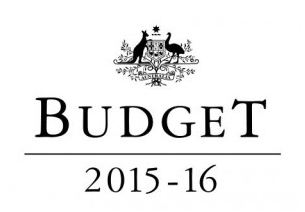Gearing up for the aid budget: budget breakfast, livestream, and more
There is no doubt that this budget will be a critically important one for aid, perhaps the most important ever. When it is handed down on Tuesday next week, it should end months of uncertainty about where the biggest aid cuts ever will hit.
For the third year running, we will be holding our annual aid budget breakfast the morning after budget, at 9am. Speakers include Stephen Howes, Anthony Swan and colleagues from Devpolicy, Julia Newton-Howes (CARE Australia) and Jacqui de Lacy (Abt JTA).
For those who cannot make it to Canberra, we will also be streaming the event live on the web—details are here. If you are planning to attend in person, do be sure to register.
We’ll also be sharing our analysis on the blog. In the past few months, we have run several pieces considering where the cuts may fall. Terence Wood looked at where they could be made in a hurry, while Robin Davies suggested that Indonesia could bear the brunt (though recent developments have made this a tricky diplomatic proposition). And if you need a refresher, we also looked at the cuts in an international context and compared with other donors (notably the UK).
PNG Update program: 59 papers
The draft program for the 2015 PNG Update, which will be held at UPNG on June 18-19, is now available [pdf]. Former World Bank Vice President Jim Adams will be delivering a keynote address on reform lessons from Africa and Asia, and there will be sessions on migration, gender, mining and development, the private sector, governance, and more. All in all we have some 59 papers, more than three times the number last year. Don’t miss PNG’s premier policy forum, supported by UPNG, ANU, the Australian aid program and the Asian Development Bank. Register here.
Last week, UPNG and ANU academics collaborated to run the 2015 PNG Update Writers’ Workshop. About 15 junior UPNG and other academics, NGO practitioners, and government officials took advantage of the opportunity to practice presenting their papers and to obtain extensive feedback.
What makes microfinance work? Lessons from Sri Lanka
On Thursday 14 May (12.30pm-1.30pm) we will be hosting a talk by Dr P.A Kiriwandeniya, founding chair of Sri Lankan microfinance provider SANASA, on the country’s flourishing microfinance and cooperative sector. Register here to hear his amazing story.
For those with an interest in the topic, recently on the blog, Terence Wood looked at some of the sceptical new evidence in the microfinance debate.
Femili PNG progress report
Femili PNG, a PNG NGO that runs a Case Management Centre in Lae to assist survivors of family and sexual violence, and which the Development Policy Centre supports on a pro-bono basis, has had a busy few months.
Kath Taplin has joined the team as our Canberra-based Senior Development Manager. She recently visited Lae, and wrote a blog post about the way that Femili PNG’s case workers support survivors of family and sexual violence through the courts.
In recent weeks, the Femili PNG team has been thrilled to sign Memoranda of Understanding (MOUs) with three important partners – the Lae District Court, the Division of Community Development in the Morobe Provincial Government and the Lae Provincial Police.
Fundraising is also gearing up. Husband-wife team Stephen Howes and Clare Holberton are the first to use Femili PNG’s new team fundraising platform. They will be running the Canberra Half Marathon on May 24 to raise funds for Femili PNG—support their team here. All donations are tax deductible, through our partnership with AFAP.
If you are interested in following Femili PNG’s progress, sign up for its newsletter.
Upcoming events
2015 aid budget breakfast
Wednesday 13 May, 9am – 10.30am. Register here.
Creating a national, sustainable microfinance institution: lessons from SANASA, Sri Lanka
Dr P.A Kiriwandeniya. Thursday 14 May, 12.30pm – 1.30pm. Register here.
Global inequality: are the world’s poorest being left behind?
Dr Martin Ravallion. Tuesday 9 June, 5.30pm – 6.30pm. Register here.
2015 PNG Update
18-19 June, University of Papua New Guinea. Details here.
Blog highlights
Robin Davies on ECF2
Busan’s New Deal and its limitations in Myanmar
PNG’s record fiscal deficit
On the blog
UK elections and aid (and Australia’s UKIP aid policy) by Matthew Morris
Vanuatu after Cyclone Pam: how will reconstruction be financed? By Matthew Dornan and Tess Newton Cain
Is extreme poverty going to end by 2030? By Chris Hoy
Is David Booth right to come out against good governance? By Terence Wood
Book review: ‘Migration and development: perspectives from small states’ by Carmen Voigt-Graf
New Deal principles in divided societies: what can we learn from the case of Myanmar? (Part 1) by Mathilde Tréguier
New Deal principles in divided societies: what can we learn from the case of Myanmar? (Part 2) by Mathilde Tréguier
To the courtroom and beyond: supporting PNG women to escape from violence by Kath Taplin
Death, taxes, and tobacco by Ian Anderson
ECF Mark II: is SEED Pacific a better Enterprise Challenge Fund? By Robin Davies
In brief
Executions haven’t changed opinions on Indonesia aid: poll
Weekend links: UK & Australian aid, development is WEIRD, Burundi, garbage coding, FGC, and more
Aid cuts get the comedy treatment
Event: Transnational Research Institute on Corruption Forum
PNG’s 2014 Final Budget Outcome – medium-term fiscal strategy off-track
Aid budget breakfast livestream
Citizenship for sale: Vanuatu launches ‘Economic rehabilitation after Pam’
NGOs gear up campaigns as budget looms
This is the fortnightly newsletter of the Development Policy Centre at Crawford School of Public Policy, The Australian National University, published every second Friday.


Leave a Comment